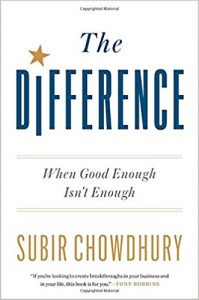07 Aug Everything Dental Blog July 2017
It’s all about People, Processes and a little magic called – MINDSET!
Most people believe that you can have the best team in the business if you choose the right people and have great systems. Many consultants use this approach and they have been correct for years. Just a few years ago, a great team with great systems could grow and maybe even exceed expectations. Today, a great team with great systems feels overwhelmed due to the layers of analytics and higher expectations to achieve.
Processes can be tweaked and people can be trained but if you want to get a little more out of your team, you need competency (training), great people, great leaders, efficient systems and the right mindset. When employees care about the customer and about the company’s success, they go the extra mile and create magic. Mindset is contagious when leaders set the tone. I have seen exceptional teams enjoy each other and the task at hand. They are workers but act like owners! They care about the patients and go the extra mile.
When I started in the dental business Linda Miles, Cathy Jameson, Dr. Gordon Christensen and Dr. Michael Miller had a huge impact on me. These four iconic dental professionals provided me with a framework that allowed me to focus on best practices both clinically and operationally.
In the early 1990’s the dental community was enamored with the new light cured materials, indirect restorations and the opportunities in hygiene. By the late 1990’s DSO’S (Dental Service Organizations) were beginning to pop up around the country and regional group practices were becoming common place. From 2000 – 2008, general dentists enjoyed a strong economy, the benefits of adhesive dentistry and the emerging technologies. This is when digital radiography became the norm and electric handpieces, Lasers, Digital Pans and CadCam started appearing on dentists wish lists. It was during this period that general dentists experimented with multi-specialty services spurred on by several direct companies.
After the great recession and housing bubble of 2008, many older dentists had to delay retirement because their retirement savings took a hit. The sluggish economy translated to less discretionary income which impacted case acceptance on big restorative cases and elective dentistry. In step with the housing bubble and a slow economic recovery grew a population of recent dental graduates with huge debt. These young professionals had little access to cash and there was a shortage of viable practices for sale. These factors and the economic uncertainty slowed new practice openings across the country. Given this new pool of dedicated dentist recruits, the dental service organizations were able to accelerate their growth. They came up with a viable solution to attract candidates that resonated with many young dentists; a solid job, loan repayment and on the job experience.
This new frontier bolstered the need for consultants and practice advisors with operational, clinical and insurance expertise. As private dental practices evolved from a cottage industry into a business entity they needed help with marketing and practice management. Of course, many practice owners did nothing because they thought the economy would bounce back and they believed the MSO and DSO activity was doomed to fail. Some practices tried to remain profitable by saving their way to prosperity and others implemented systems and strategies to grow and thrive. Today we see the results of these mindsets as some practices are struggling and some are soaring.
It’s all about the systems?
For over a decade, I have presented to study clubs and have lectured at dental events stating that systems were the key to optimizing practice performance. I honestly believed that people were interchangeable and replaceable if the systems were solid. This was reinforced by successful clients who placed more emphasis on the processes and outcomes than harmony at the work place. Fortunately for me, I work with over one hundred offices so I get to see what works and what does not. This was a turning point for me and my career. I started to observe my practices through a different lens. I started looking for patterns (operational, behavioral and cultural) at each office. After a while I could identify management, HR, operational or financial challenges that were affecting the businesses productivity and profitability. The offices that were operationally superior outperformed those that were not. Many were plagued by staff turnover and lack luster performance. After interviewing dozens of auxiliaries, it became crystal clear that leadership, culture and a caring mindset matters not only for the practice to thrive but for employees to stay. The culture and atmosphere behind the scenes is as important as the people and systems in place. Team harmony and the work environment truly does matter even in this era of big data and real time analytics.
It’s all about the people?
Talented professionals soar when they have great systems and clarity about the task at hand. They can overcome most obstacles and are the practices best ambassadors. They have great skills and are committed to their profession and their employer. Any practice would do well to have them on their team. While it is true that top performers can do anything, dentistry is a team driven enterprise. Think of it like this; a major-league baseball team with a few stars, destined for the hall of fame, will not make the playoffs if the supporting team doesn’t hit or makes costly errors in the field. Similarly, a dental office with a great team and poor leadership or a dental team with some great talent and weak systems will not achieve their potential.
Of course, great systems and great people are destined for great things but if the team is not committed to the mission and vision of the practice than they will hit critical mass prematurely. Attitude, commitment and the desire to provide customers with a great experience is the differentiating factor. An average clinical team with a healthy mindset, that is committed to their team and providing a great customer experience, will outperform an exceptional clinical team that does not adhere to the same mindset.

It’s all about mindset
I recently read a great book about Why Good Enough Isn’t Good Enough Anymore. It was referred to me by a mentor who leads one of the greatest sales organizations in the world.
“The best processes in the world won’t work without developing the kind of mindset — a caring mindset — that is needed to achieve real and sustainable change in both organizations and individuals.” – Subir Chowdhury
This book was a quick read. I recommend it to anyone who wishes to raise their awareness and create a better understanding of their current work environment and ways to improve their organization. The book illustrates the profound difference in activity, output and team harmony when everyone is focused on creating great work and a great customer experience.
Mindset is critical to small groups, teams and to us individually. Our mindset may prevent us from achieving our full potential. Our belief about ourselves and our capacity to learn can have implications. Imagine if you had self-doubt or thought you weren’t smart enough to go to college even though you had the grades. That mindset would affect your entire life and would lead to a self-fulfilling prophecy. On the other hand, if you believed you could do anything than your choices would have been different and your life would be too! A positive or growth mindset allows us to experience change and growth that would not be possible otherwise.
Change can be scary but you’ll rarely hear someone say it wasn’t worth at the other end. People who change with a positive mindset will tell you how their lives, career and relationships have been enhanced. They generally have a richer life and feel more accomplished, courageous and alive.


